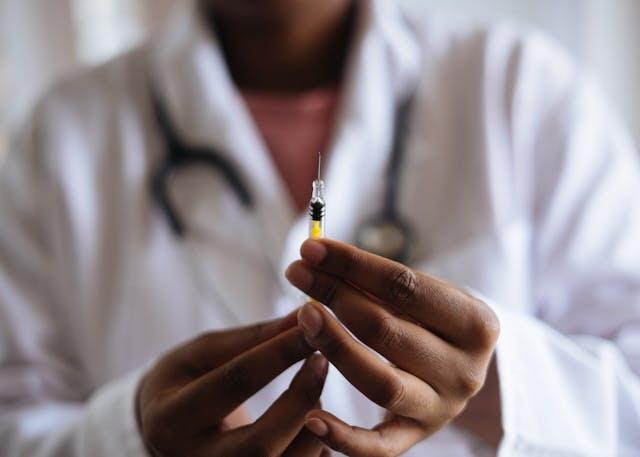For cigarette smokers and those who may be tempted to start, here’s a bit of truly disturbing new information from the American Chemical Society.
New research revealed that tobacco smoke causes genetic damage within minutes of inhalation of cigarette smoke, not years. The adverse effects are almost instantaneous as the smoke gets into the lungs. This new finding corrects the old notion that smoking took years to initiate damages to the body.
According to the study in Chemical Research in Toxicology there are toxic chemicals in tobacco that cause damage in DNA linked to cancer development among smokers. Lung cancer due to smoking kills more than 3,000 lives every single day around the world. There are almost 20 other cancers caused by tobacco use.
Secondhand smoke (involuntary or passive smoking) has been found to cause physical and mental aberrations among children. These helpless victims of parents or family members who smoke can suffer recurrent respiratory tract infections and psychological disturbances as they are regularly inhale secondhand smoke in their environment.
Children exposed to the toxic substances from secondhand smoke are more prone to develop hyperactivity, bad behavior (conduct disorder), and other mental health disorders, as reported by Mark Hamer, Ph.D., from the University College of London, published December 6, 2010 in the Archive of Pediatric Adolescent Medicine. More data are on www.philipSchua.com, a website undergoing an update.
* * *
Caution on med combo
Combining a popular blood pressure medication and either of two commonly used antibiotics may lead to dangerously low blood pressure, or even shock, in elderly individuals.
This was revealed in a 15-year study led by Senior author Dr. David Juurlink of the Sunnybrook Research Institute and the Institute for Clinical Evaluative Sciences in Toronto, Ontario, Canada, published in the January 2011 issue of the Canadian Medical Association Journal.
The medication is calcium-channel blockers (CCB), a class of pills used for treating high blood pressure, and the two anti-infection pills are macrolide antibiotics called erythromycin or clarithromycin. When a CCB pill is taken by an elderly person in combination with either of the two macrolide antibiotics, the blood pressure of the individual could drop to an unsafe low level. Some may even go into shock.
However, Azithromycin, also a macrolide antibiotic, when taken with a CCB did not have such an adverse reaction. Dr. Juurlink recommended that “when clinically appropriate, it (azithroymcin) should be used preferentially in patients receiving a calcium channel blocker.”
* * *
What causes B.O.?
Body Odor, medically termed bromhidrosis, ozopchrotia, and osmidrosis, is very common. This embarrassing condition is gives off an unpleasant scent of foul-smelling sweat.
The offensive smell is caused by the bacterial breakdown of body protein into propionic acid or isovaleric acid. We have bacteria all over our body. Frequent shower/washings reduce their presence. Under normal condition, we have a certain bacterial count on our skin, especially in the armpits, mouth and tongue, genital area, groin, behind the ear, eyelids, nose, breasts, belly button, feet, etc. Those who are obese or are diabetics are more prone to body odor. Of course, those with poor hygiene are harbinger of severe body odor.
Normally, we have our individual body odor from our natural pheromones. This gives us our sexually stimulating scent to the opposite sex and affect how we react to each other. It is when bacterial breakdown takes place due to hygienic reason, genetic predisposition to sweating, or for health reason, that offensive body odor (mostly sweat from the apocrine glands of our body) results.
Personal cleanliness, including daily complete shower, total facial hygiene (mouth, tongue, teeth, ear, nose), keeping feet clean and dry, and perhaps the use of anti-perspirant/deodorant, are the mainstay of preventive regimen against B.O. Those with resistant and persistent offensive body odor should seek medical advice for any underlying medical condition causing the problem.
* * *
Big breakfast myth
Eating a big breakfast will help people lose weight – fact or fiction?
It is a common belief that eating a full breakfast aids in calorie and weight control, and that it is a healthy practice.
A recent German study disproved the notion that ingesting a large meal in the morning staves off hunger longer and reduces caloric intake during lunch and dinner, and helps in weight control. The findings showed that eating a huge breakfast only increases the total caloric intake for the day, and did not reduce intake during lunch and dinner.
Eating a cup of oatmeal or other high-fiber, low-sugar, bran cereals, with a serving of fruit, and a glass or two of water, instead of rice or bread with eggs and meats (bacon, ham or sausage), is healthier breakfast that is within 400 calories.
For those who are overweight trying to control their intake, a glass of milk and/or coffee plus a couple of glasses of water for breakfast can work wonders, so long as they do not compensate in the next two meals and go beyond their total daily caloric limit. Diabetics must likewise be within their prescribed diet.
A healthy lifestyle, which confers a superior quality of life and longevity, requires a lot of discipline and determination. But it pays great dividends and is all worth it.
***
Philip S. Chua, MD, FACS, FPCS, Cardiac Surgeon Emeritus in Northwest Indiana and chairman of cardiac surgery from 1997 to 2010 at Cebu Doctors University Hospital, where he holds the title of Physician Emeritus in Surgery, is based in Las Vegas, Nevada. He is a Fellow of the American College of Surgeons, the Philippine College of Surgeons, and the Denton A. Cooley Cardiovascular Surgical Society. He is the chairman of the Filipino United Network – USA, a 501(c)(3) humanitarian foundation in the United States. Email: scalpelpen@gmail.com






